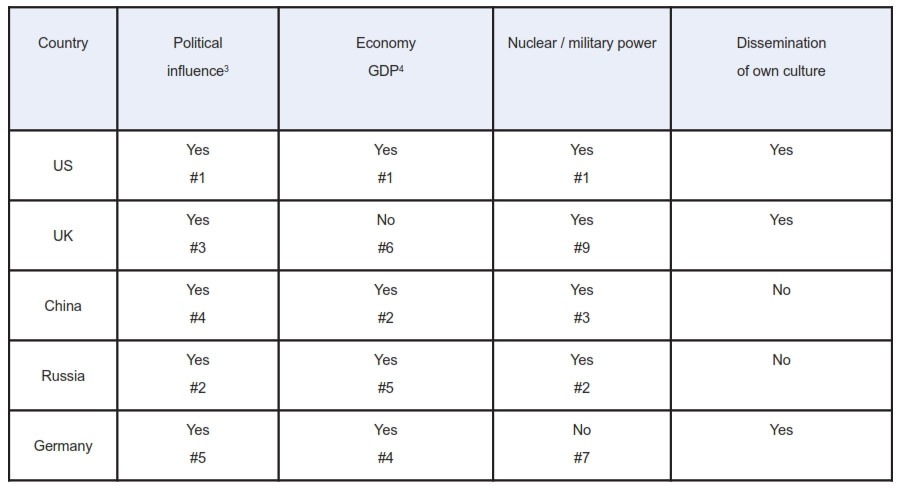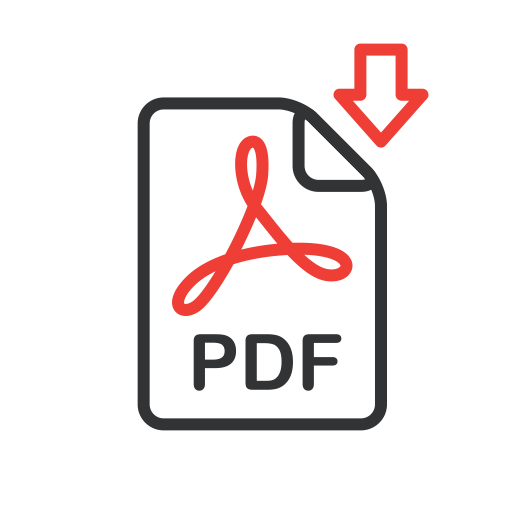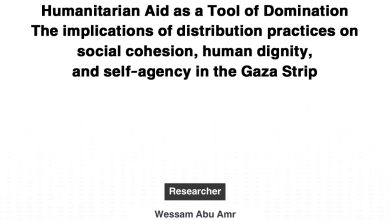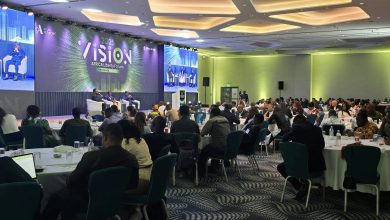Germany as an influential political actor in the Middle East conflict: Possibilities and prospects

1. Why Germany can play a stronger role in the Middle East
By virtue of holding a powerful economic rank as well as strong foundations for development and sustainable improvement, Germany has manifestly become the heart of the European Union. In addition to hosting the European Central Bank in Frankfurt, it has the largest national economy in the EU. According to the IMF,1 Germany accounts for 28 percent of the Eurozone economy. Its solid state structure development and economic power as well as its unique educational system have produced a well-educated population that values discipline and hard work.
Taking the Middle East for example, Germany has been working on a variety of sectors, including development, education, and health. With well-established cultural centers located all around the MENA region, the German government has been offering numerous scholarships and culture exchange programs, helping to create a professional path for many of the leaders in these countries. In addition, Germany’s huge investment in high-tech and manufacturing has earned it a legacy around the world. One more advantage Germany holds regarding its relationships with MENA countries is it having opened its doors to the refugees fleeing the results of conflict. This has given more respect and leverage to practical solutions and initiative from Germany in response to such humanitarian cases. Additionally, Germany enjoys a warm relationship with Israel as a power in the Middle East. With these good economic and diplomatic relations, a door for business and technical cooperation has opened, which will further strengthen these ties.
One great example of technical expertise and technology in which Germany is leading the way is sustainable energy, as it is producing almost 36 percent of its energy by using sustainable tools, aiming to raise this to 85 percent within the next couple of years and shut down nuclear plants by 2022.2 Increasing the sustainable energy share is of direct help and partnership to the people of the Arab countries, where there are variations in demand and need. Germany is one of the leading countries in producing such technologies, and such technology is in high demand on the Arab market.
In addition to all of that, Germany is one of the few countries that have a soft power influence in the MENA region without having a history of colonialism. The United Kingdom and France do not have such privileges. On the listed points, Germany has great influence and a warm relationship with the countries of the Middle East.
2. What is required to become a global power? (Candidate for a superpower)
At present, Germany has one of the strongest economies in the world, the best in Europe and with one of the largest trade surpluses. However, this alone is not enough for Germany to be considered a global power.
For this, it must first have one of the best economies in the world, and Germany therefore has what enables it to be a potential global power from the economic aspect, as it is
Table 1. Comparison between global powers matrix

currently considered the fourth largest economy in the world in terms of GDP. It is the only nation in the Eurozone with sustainable growth after the euro crisis, and a leading economy in manufacturing automotive, chemicals, steel, iron and technology. Germany also has a large, well-educated population – a powerful bonus since a healthy, welleducated population is more likely to be able to boost productivity in the economy. However, Germany relies on exports, which makes it less autarkic.
Politics and demographics are also considered among the strengths of Germany. It is a leading country in the European Union, enjoys great relations with the global powers around the world, especially with the US, Russia, China and France, and has a wellstructured political system. Germany has a federal political system that sets a strong foundation for democracy and political stability within the country. In addition to a powerful economy and stable political system, for decades Germany has had one of the leading educational systems, promoting all levels of education – even university – for free for its citizens and foreigners, which in turn has helped it to form a well-educated and valuedriven population as well as to invite scholars from all around the world for research and culture exchange purposes. Germany has built bridges and cultural ties with countries around the world, establishing well-known cultural centres in MENA region.
Despite that fact Germany does not own nuclear warheads and does not want to become a military nuclear power, it is considered the seventh strongest country in the world in terms of military hardware and force. Thus, it can be considered one of the strongest militaries around the world. It is without doubt that economic power along with military force can result in a powerful influence on the regional and international scene. Nevertheless, there have been some variables in the recent era, emphasising the concept of ‘soft power’ in the pursuit of achieving interests. This is what Germany has been practicing in the Middle East and elsewhere.
III. German relationship with countries in the Middle East
III.1 Israel
Since the signing of the Luxembourg Agreement in 1952, which compensated Israel for the resettling of Jewish people after the Nazi era, the relationship between the two countries has become more solidified, strategic and sustainable, not only financially, but militarily as well. For example, Germany has provided Israel with Patriot Missiles and a number of Dolphin submarines that can carry nuclear heads.
With a huge amount of German investment in Israel, in addition to the economic, industrial, and political ties, relations are warm. Germany is a leading trading partner with Israel in Europe, and the third trading partner around the world. This unique relationship has seen Germany express its unshakable support for Israel, which has been welcomed by the Israeli government on a bilateral and international level. Trading between the countries encompasses chemicals, hardware, and many more products. Despite recent differences in the relationship with Israel, the two countries consider themselves as strategic allies.
III.2 Palestine
Germany is also one of the largest financial supporters of the Palestinian Authority in Europe. Since signing the Oslo Agreement, Germany has sought for more than two decades to work within different sectors towards the development of the Palestinian governmental institution, including direct support for its budget, financial support for the United Nations Relief and Works Agency, bringing in the German KfW development bank – which contributed to the building of infrastructure – as well as exporting technical expertise through the German development agency GIZ and upgrading human resources by contributing to intellectual and research centres. The tens of German cultural centres located across many cities in Palestine have been providing opportunities for culture exchange, graduate study and research, and a wide range of cultural activities. In addition, the German government has accomplished a variety of developmental and health projects that aid the infrastructure of Palestinian cities. This has resulted in good relations and a positive view of German government and culture among Palestinians, which represents a leveraging factor for German intervention in the Palestinian-Israeli conflict.
On the other hand, Germany has not yet recognised Palestine as a state, which to some may be a disadvantageous point in seeking to mediate peace talks. However, Germany has made it clear that it will recognise Palestine if it serves the peace talks, and it will support the results of the agreement between Israel and Palestine, rejecting anything that does not serve the peace process.
IV. German intervention possibilities in the Middle East
IV.1 Palestinian-Israeli conflict
With powerful ties to the government of Israel and a good relationship with the Palestinian Authority, Germany has the power not only to support peace talks and a resolution between the two sides, but also to host and attract external support as well. German intervention in this conflict has been hesitant from the political side. While the US has shown a clear support for and ties with the Israeli side, Germany can play an important role by being a neutral side and maintaining a good relationship with both parties. Germany is one of the few countries which is able to do this.
IV.2 Arab Spring
The youth uprising in various countries in the MENA region, which formed what we can term the Arab Spring, aimed to renew governmental policies and youth participation, trying to make their voices heard. The youth mainly succeeded in turning the tables in their favour. However, they were not equipped with enough political and democratic experience to establish a solid system of polices to protect the milestones they had achieved. While setting an excellent example for a sustainable and “boring” political system, Germany is also capable of equipping the Arab youth with democratic experience of governance not only on the governmental side, but also regarding the civil society, economic, and international relations aspects.
IV.3 Economic development
While Germany is leading the European Union in terms of its economic performance; it also has the direct capacity to strengthen economic ties between itself and the countries of MENA region. By establishing economic ties, the international economic influence of Germany will increase, while it provides equipment and services to leading Arab cities.
IV.4 Culture and education partnership
While direct German military influence is absent in the Middle East, Germany may have to double or triple its efforts to build partnerships with both governmental and civil society organisations in these countries. Germany enjoys a strong economic alliance with Israel, yet it needs to push for other partnerships to maintain its neutral stance. By providing scholarships, exchange opportunities and empowering civil society organisations, for example, Germany will be building new cultural and education partners while maintaining its influence and presence in the Arab countries.
V. Priorities of German engagement in Israeli-Palestinian conflict
V.1 The reconstruction of the Gaza Strip
With the peace process having been put in a coma, the existence of a new player that can revive the talks is essential. After the recent decision to set a date to move the US embassy, the peace process has reached a dead end. Although the White House is no longer stressing the importance of a two-state solution, the head of the German parliamentary committee on foreign affairs, Norbert Röttgen, stated to Die Welt newspaper that “the two-state solution is the only way Israel can remain a democratic and a Jewish state at the same time.”5 He thereby expressed the view of Germany on the importance of the peace talks and the two-state solution. Germany has the opportunity to host the peace talks with the support of the European Union and other stakeholder countries.
On the other side, one of the most urgent points is the process of the reconstruction of the Gaza strip. After the 2014 conflict, Gaza was left with damaged infrastructure, which resulted in the Gaza Reconstruction Mechanism (GRM) to allow materials to enter to Gaza. However, Gaza is in immediate need of economic and humanitarian help to retrieve it from the verge of collapse.
V.2 Advancing the Palestinian reconciliation – The German experience
Both of the leading parties in Palestine, Fatah and Hamas, have been in conflict ever since 2007. This has resulted in a direct loss to Palestinian unity and aided the fragmentation of both the West Bank and Gaza Strip. In holding a neutral stance between the two parties, Germany can influence reconciliation and help with the democratisation and unification of both sides, which will directly serve not only as a step forward to improve the conditions of Palestinians, but the peace process as a whole. When Germany suffered from its division into East and West Germany, it left a powerful experience in unification and slowly maintaining peace while dealing with a bloody past. In Palestinian-Palestinian reconciliation and the Palestinian-Israeli peace process, Germany has the capability to work towards sustained solutions with its powerful experience of previous conflict. Germany has the ability not only to empower civil society organisations, but also to build and cultivate possible solutions.
V.3 Unification then peace process
The last democratic elections held in Palestine were in 2006, and the Palestinian parliament has been suspended ever since the conflict between Fatah and Hamas started. One key point to the unification of Gaza Strip and Palestine is the restoration of parliament and democratic elections, which could re-establish the connections between the two sides. It may not be possible to deal with the two factions together. However, it is possible for civil society organisations to work to close the gap and advocate for such a solution in the short run. Empowering such organisations and becoming a powerful player in this conflict could enable Germany to achieve what other countries could not, providing sustainable economic solutions based on a democratic foundation. Furthermore, by holding such an important role in finding these solutions, Germany would be able to directly influence the state-building of Palestine, which in turn would be one huge step towards the two-state solution.
By enhancing the economic collaboration between the two sides, improving Palestinian living conditions and helping in the unification of the Palestinian government and political parties. Germany could in fact achieve what other countries have been attempting for decades. Leading and building a path to a culture of peace for Palestinian and Israelis is one of the most essential topics on the agenda in international politics. When Palestinian unification happens, Palestinians will learn what it is like to solve their conflicts in a peaceful matter, which will be a definite step ahead in the peace process. By utilizing its powerful position in the EU, its economic relations around the region and its strategic alliance with Israel, Germany is capable of increasing its influence and partnerships around the world in order to become a global power.
Conclusion
In conclusion, Germany has ambitions to become a global power, and is therefore looking forward to holding a permanent seat on the UN Security Council. However, Germany requires international influence in all aspects in order to attain a globally powerful status.
The MENA region is one of the most important parts of the world in which to present its influence, and there are many opportunities for Germany to replace different global powers in the future in this region.
Nevertheless, the German parliament has drafted a bill to recognise Israel as a Jewish state, something that will be rejected by many of the Arab countries, particularly by the Palestinian Authority. On the other hand, if Germany is endorsing such a stance towards Israel, it also needs a powerful stance toward with the Palestinians for balance. Germany’s most leveraging point is its neutrality, and it needs more active influence in the MENA region in order to maintain that.
Recommendations include:
– Germany is still hesitant to intervene in the Palestinian-Israeli case, specifically when dealing with Hamas due to the contact policy under the Quartet conditions. Overcoming this problem is essential to the stability of domestic relations and reconciliation in Palestine, to the relationship with Israel, and to regional stability. Germany needs to find a different channel than direct contact with Gaza. For example, it could do so through civil society organisations, which can be a third party between the two. It is both necessary and strategic for Germany to be involved in this case, and by assisting in one of the oldest unsolved struggles, Germany can promote its public image with the values of democracy and change.
– Germany is generally perceived positively by Palestinians, who believe it will play a constructive role in this. Palestinians do not fully agree with the Quartet conditions overall, while Germany is slowly becoming involved in the peace process and reconciliation without violating the Quartet conditions. Germany has the assets and relationships necessary to be perceived as a mediator in this conflict, and it has the potential to play a crucial role in deciding the outcome of such a process.
Reference list
DEUTSCHE WELLE, “Germany emphasizes importance of two state solution,” February 15, 2017, http://www.dw.com/en/germany-emphasizes-importance-of-two-state-solution/a-37565483.
IMF, “Germany: Spend More At Home,” July 2017, https://tinyurl.com/yc7hwwon.
SHEN, LUCINDA, “RANKED: The strongest militaries in the world,” Business Insider, September 29, 2015, http://www.businessinsider.com/ranked-the-strongest-militaries-in-the-world-2015-9.
US NEWS, “Most Influential Countries,” 2017, https://tinyurl.com/ydxl6hj7.
WACKET, MARKUS AND ERIK KIRSCHBAUM, “Germany breaks green energy record by generating 35% of power from renewables in first half of 2017,” The Independent, July 3, 2017, https://tinyurl.com/y96gemuz.
All internet sources were accessed and verified on June 18, 2018
Download PDF: http://palthink.org/en/wp-content/uploads/2018/06/Article-Shaban.pdf





